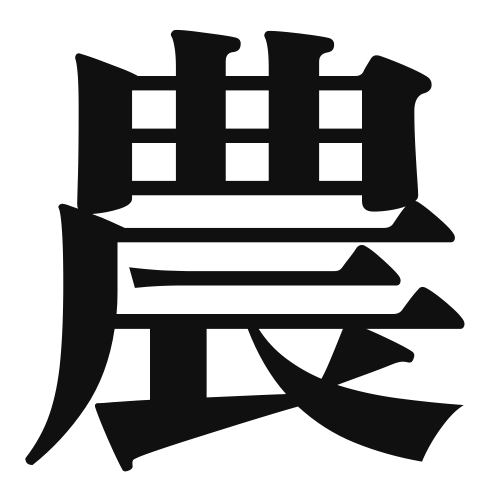1. Overview of Meaning
The kanji “農” (pronounced “nō”) means “agriculture” or “farming.” It represents the practice of cultivating land and raising crops, which is essential for food production and sustenance.
2. Formation and Radical
The kanji “農” is a compound character, formed by combining the radical for “field” (田) and the character for “work” (工). This combination reflects the idea of working in the fields. The radical “田” is often associated with agriculture and farming.
3. Examples of Usage
Common words and phrases that include “農” are:
- 農業 (nōgyō) – agriculture
- 農家 (nōka) – farmer’s house or farm
- 農産物 (nōsanbutsu) – agricultural products
Example sentence in daily conversation:
「彼は農業を営んでいます。」(Kare wa nōgyō o itonandeimasu.) – “He is engaged in agriculture.”
4. Synonyms and Antonyms
Similar kanji with related meanings include:
- 畜 (chiku) – livestock, which refers specifically to raising animals.
- 耕 (kō) – to cultivate, which focuses on the act of tilling the soil.
Antonyms include:
- 工 (kō) – industry, which refers to manufacturing and production rather than agriculture.
5. Cultural and Historical Background
The kanji “農” is deeply connected to Japanese culture, where agriculture has played a vital role in society for centuries. Traditional practices and festivals often celebrate the harvest and farming.
Proverbs and idioms related to “農” include:
- 「農は国の基」(Nō wa kuni no moto) – “Agriculture is the foundation of the country,” emphasizing the importance of farming in sustaining society.
